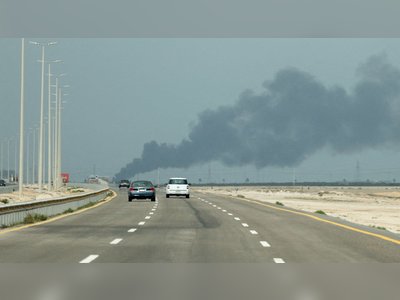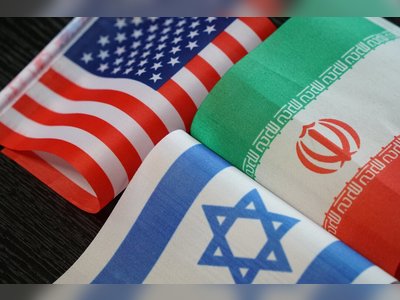Global Shifts: UK Financial Reforms Amid Controversial US Appointments and Rising Tensions in Asia
UK Labour's financial reforms aim to mobilize £80 billion for economic growth as Trump's controversial nominees stir debate amid global tensions and natural disasters.
The UK Labour government has announced ambitious financial reforms aimed at boosting economic growth, planning to mobilize £80 billion through mega pension funds and drive innovation with digital bonds. Meanwhile, across the Atlantic, President-elect Donald Trump's recent nominee for US Director of National Intelligence, Tulsi Gabbard, has stirred controversy due to her limited experience and divisive views, especially concerning relations with Russia and Syria.
In a related development, Trump has also sparked public health debate by tapping Robert F. Kennedy Jr., a known anti-vaccine proponent, for the position of Health Secretary, challenging the qualifications typically expected for overseeing national health agencies. Furthermore, eyes are turned southward as China and Peru have launched a $3.5 billion port project expected to expand trade networks in South America, amid US caution over growing Chinese influence in the region.
As geopolitical shifts unfold, the Philippines faces its own crisis in the wake of Typhoon Usagi, with Northern Luzon devastated and the United Nations urgently seeking $32.9 million in aid to help those affected, while brace for the arrival of another storm, Man-yi. Meanwhile, tension escalates in Northeast Asia as North Korea ramps up its military capabilities, with Kim Jong Un ordering the mass production of exploding drones amid ongoing US, South Korea, and Japan joint military exercises.
These drones, which underscore North Korea's growing focus on modern warfare strategies, come at a time when allegations of military support to Russia are drawing increased scrutiny from the international community. The complexity of these global interactions reminds us that while nations pursue growth and reform, they must also navigate the challenging waters of international diplomacy and evolving security landscapes.
With each headline connecting to the next, it becomes clear that these global stories are intertwined, from economic ambitions in the UK, political appointments and trade initiatives in the Americas, to the natural and geopolitical storms brewing across Asia. As these narratives unfold, it highlights the importance of staying informed and understanding the broader geopolitical context affecting nations worldwide.
Thus, as we track these developments, we not only witness the challenges and innovations shaping our world but also the critical responsibilities leaders hold in steering their countries through complex and interconnected global issues.
In a related development, Trump has also sparked public health debate by tapping Robert F. Kennedy Jr., a known anti-vaccine proponent, for the position of Health Secretary, challenging the qualifications typically expected for overseeing national health agencies. Furthermore, eyes are turned southward as China and Peru have launched a $3.5 billion port project expected to expand trade networks in South America, amid US caution over growing Chinese influence in the region.
As geopolitical shifts unfold, the Philippines faces its own crisis in the wake of Typhoon Usagi, with Northern Luzon devastated and the United Nations urgently seeking $32.9 million in aid to help those affected, while brace for the arrival of another storm, Man-yi. Meanwhile, tension escalates in Northeast Asia as North Korea ramps up its military capabilities, with Kim Jong Un ordering the mass production of exploding drones amid ongoing US, South Korea, and Japan joint military exercises.
These drones, which underscore North Korea's growing focus on modern warfare strategies, come at a time when allegations of military support to Russia are drawing increased scrutiny from the international community. The complexity of these global interactions reminds us that while nations pursue growth and reform, they must also navigate the challenging waters of international diplomacy and evolving security landscapes.
With each headline connecting to the next, it becomes clear that these global stories are intertwined, from economic ambitions in the UK, political appointments and trade initiatives in the Americas, to the natural and geopolitical storms brewing across Asia. As these narratives unfold, it highlights the importance of staying informed and understanding the broader geopolitical context affecting nations worldwide.
Thus, as we track these developments, we not only witness the challenges and innovations shaping our world but also the critical responsibilities leaders hold in steering their countries through complex and interconnected global issues.











